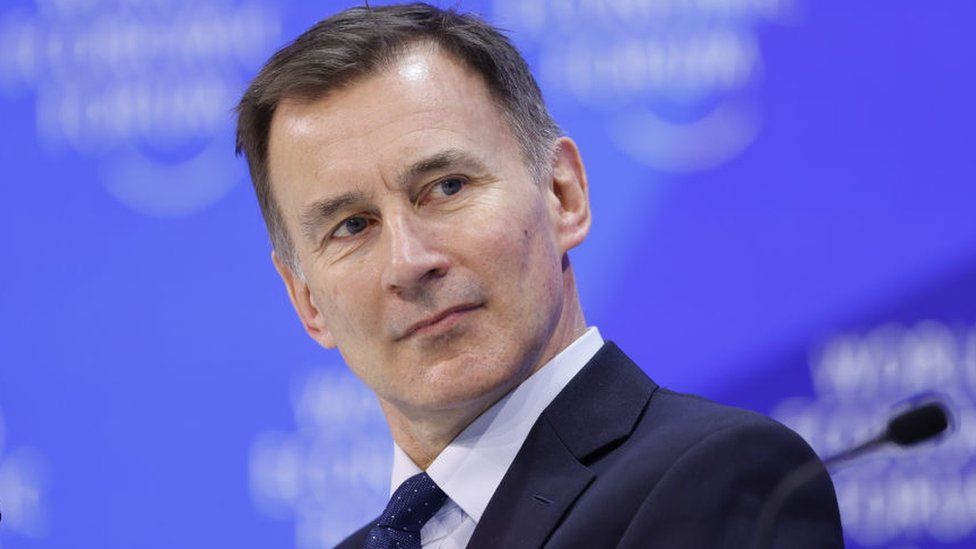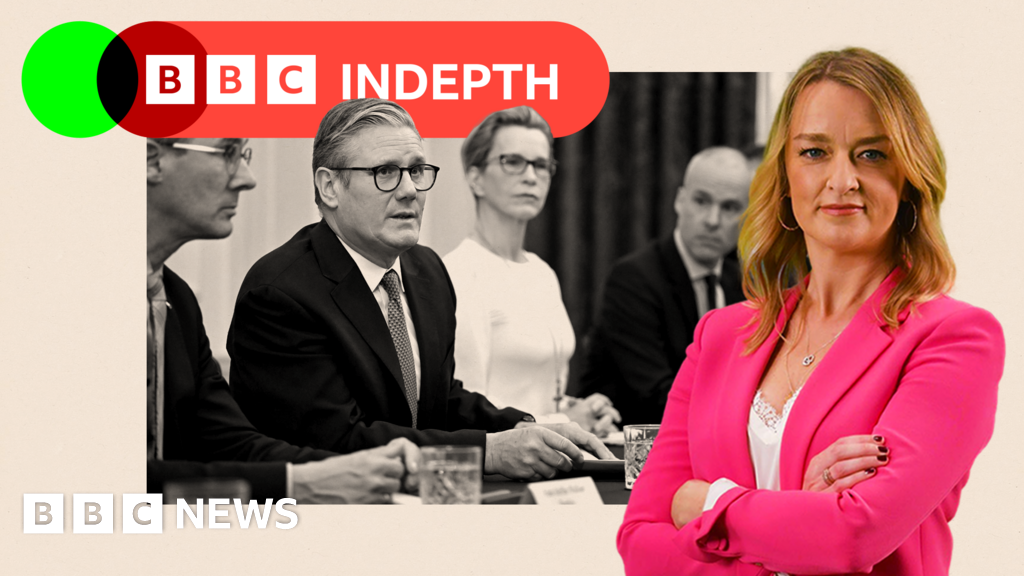ARTICLE AD BOX

By Faisal Islam & Michael Race
Economics editor & Business reporter, BBC News
The chancellor is looking at larger public spending cuts as a way to deliver tax cuts, the BBC understands.
Jeremy Hunt is considering cuts because he's seen economic forecasts ahead of the Spring Budget which it's understood paint a bleaker picture of public finances than previously thought.
Mr Hunt has given strong hints he wants to cut taxes, which are on course to rise to the highest level for decades.
But interest costs on government borrowing have risen in recent weeks.
The exploration by the chancellor to reduce public spending to fund tax cuts comes after already pencilled-in spending squeezes were described as a "work of fiction" by the government's official economic forecaster, the Office for Budget Responsibility (OBR).
Asked by the BBC whether he was planning to squeeze public services to fund pre-election tax giveaways, Mr Hunt said: "The way you get resources to fund our public services for the future is to have an economy which is growing healthily - and that is what our plan is designed to deliver, but the first thing you have to do is to bring down inflation."
On Thursday, official figures showed the UK economy slipped into recession in the final months of 2023, casting doubt over Prime Minister Rishi Sunak's pledge of economic growth.
But Mr Hunt argued that when the prime minister "made his commitment he was very clear, tackling inflation had to come first".
"The big picture is that actually since then the economy has been more resilient, unemployment has stayed low, real wages have been rising now for six months. And if we stick to our guns now, we can see light at the end of the tunnel," the chancellor said.
The UK is considered to be in recession if the economy shrinks in size for two successive three-month periods.
Inflation, which is the rate prices rise at, remains double the Bank of England's target of 2%, placing pressure on household finances, but has fallen from its peak of 11.1% in October 2022.
The Bank of England has raised interest rates fourteen times since December 2021 in an effort to slow inflation. They are currently at a 16-year high of 5.25%.
Mr Hunt said the "turning point" for the economy "will come when inflation falls to its target of 2% and the Bank of England feels it can bring down interest rates".
The Financial Times first reported that Treasury insiders said the Mr Hunt was looking at "further spending restraint" after 2025, if official forecasts suggest he does not have room under the government's own spending rules to fund tax cuts.
Sources told the BBC that tougher spending cuts were an option due to forecasts handed to the chancellor showing that public finances had deteriorated in recent weeks as interest costs on government borrowing had increased to above 4%.
It is widely expected the chancellor will focus on taxes in his Spring Budget on 6 March, with households keen to ease cost-of-living pressures on their finances.
Currently, the overall tax burden is on course to rise to the highest level for decades as workers are pushed into higher income tax brackets as a result of tax thresholds being frozen at the same level for more than two years.
Usually tax thresholds rise in line with inflation, but the government has kept them at the same level since 2021 and the plan is to keep them at the same level until 2028.
Talk of tax cuts by Mr Hunt have previously been met with criticism by economists and forecasters.
The International Monetary Fund (IMF), an international organisation with 190 member countries, including the UK, advised "against further tax cuts", suggesting spending plans were unrealistic.
The Institute for Fiscal Studies (IFS) has called on politicians to be honest about tough economic trade-offs, arguing that "tax cuts today add to the risk of tax rises or spending cuts tomorrow".

 1 year ago
102
1 year ago
102








 English (US) ·
English (US) ·